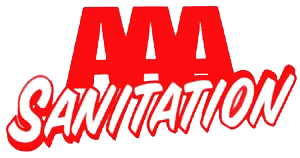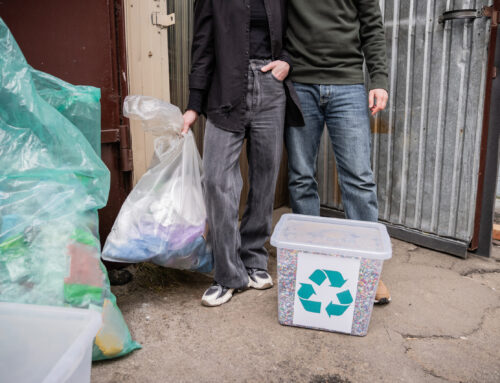
In an era where public health and environmental sustainability are top priorities, investing in professional sanitation services has become more critical than ever. Whether for residential, commercial, or industrial purposes, effective sanitation is crucial for maintaining hygiene, preventing disease, and enhancing overall quality of life. However, the decision to invest in professional sanitation services often involves a detailed cost-benefit analysis. This article will explore the financial and non-financial aspects of investing in these services, helping you make an informed decision for your needs.
Understanding Professional Sanitation Services
Professional sanitation services encompass a range of activities aimed at maintaining cleanliness and hygiene. These include:
Waste Management
Collection, transportation, and disposal of various types of waste, including residential, commercial, and industrial.
Cleaning Services
Regular cleaning and disinfecting of buildings, including offices, schools, hospitals, and public spaces.
Recycling Programs
Sorting, processing, and recycling of materials to reduce landfill waste and promote resource recovery.
Pest Control
Management and elimination of pests to prevent infestations and maintain a sanitary environment.
Cost Analysis
Direct Costs
Service Fees: The most apparent cost is the fee paid to the sanitation service provider. This can vary based on the type of service, frequency of service, and the size of the area to be serviced. For example, regular residential waste collection might cost significantly less than comprehensive industrial waste management.
Equipment and Supplies: Professional sanitation services often involve the use of specialized equipment and cleaning supplies. For instance, commercial cleaning services may use advanced machinery and eco-friendly products, which contribute to the overall cost.
Labor Costs: Professional services include the cost of labor. This covers the wages of sanitation workers, their training, and any associated benefits. In most cases, these costs are reflected in the service fees.
Indirect Costs
Administrative Costs: Managing sanitation services, including scheduling, compliance with regulations, and communication, can incur administrative costs. This is particularly relevant for large organizations or facilities.
Operational Disruptions: In some cases, sanitation activities might cause temporary disruptions to daily operations, particularly in commercial or industrial settings. These disruptions can impact productivity and incur additional costs.
Benefit Analysis
Health and Safety
Disease Prevention: Professional sanitation services help prevent the spread of diseases by ensuring that environments are clean and hygienic. Regular cleaning and disinfection reduce the risk of infections, which is especially important in healthcare settings and public spaces.
Pest Control: Effective pest control services prevent infestations that can pose health risks and damage property. This contributes to a safer and more comfortable living and working environment.
Compliance: Professional services ensure compliance with health and safety regulations, reducing the risk of fines or legal issues related to sanitation standards.
Environmental Impact
Waste Reduction: Professional recycling programs contribute to waste reduction and resource recovery, minimizing the environmental impact of landfills. Effective waste management and recycling reduce pollution and conserve natural resources.
Sustainable Practices: Many sanitation service providers use eco-friendly products and sustainable practices. This reduces the environmental footprint of cleaning and waste management activities.
Energy Efficiency: Advanced sanitation technologies can enhance energy efficiency, further reducing environmental impact. For example, modern waste-to-energy systems can convert waste into usable energy.
Operational Efficiency
Time Savings: Outsourcing sanitation services allows organizations and individuals to focus on core activities without the distraction of managing cleaning and waste management tasks. This can lead to increased productivity and efficiency.
Expertise: Professional sanitation providers bring expertise and experience to the table, ensuring that tasks are performed effectively and efficiently. This expertise includes knowledge of best practices, advanced techniques, and compliance with regulations.
Quality Assurance: Professional services often include regular quality checks and maintenance, ensuring high standards of cleanliness and hygiene. This reduces the likelihood of issues such as inadequate cleaning or improper waste disposal.
Reputation and Aesthetics
Enhanced Image: For businesses and public facilities, maintaining a clean and well-maintained environment enhances the organization’s image and reputation. It creates a positive impression on customers, clients, and visitors.
Comfort and Satisfaction: A clean and sanitary environment contributes to the comfort and satisfaction of residents, employees, and visitors. This can improve morale and overall well-being.
Making the Decision
Assessing Needs
Before investing in professional sanitation services, assess your specific needs. Consider factors such as the size of the area to be serviced, the type of waste generated, and the frequency of cleaning required. Understanding your needs will help you determine the appropriate level of service and associated costs.
Evaluating Providers
Research and evaluate different sanitation service providers. Compare their services, pricing, and reputation. Look for providers with a track record of reliability and quality. Reading customer reviews and seeking recommendations can provide valuable insights.
Calculating ROI
Consider the return on investment (ROI) of professional sanitation services. Weigh the benefits of improved health, safety, and environmental impact against the costs. Calculate potential savings from reduced health issues, increased productivity, and enhanced reputation.
Budgeting
Develop a budget for sanitation services that aligns with your financial capabilities and priorities. Ensure that the budget includes all direct and indirect costs, and consider potential cost savings from improved operational efficiency.
Long-Term Considerations
Think about the long-term benefits of investing in professional sanitation services. Consider factors such as long-term health benefits, environmental impact, and sustained operational efficiency. An investment in sanitation services can provide lasting value and contribute to overall well-being.
Learn More With AAA Sanitation
Investing in professional sanitation services involves a thorough cost-benefit analysis that takes into account both financial and non-financial factors. While the direct costs of professional services can be significant, the benefits—including improved health and safety, environmental impact, operational efficiency, and enhanced reputation—often outweigh the expenses. By carefully assessing your needs, evaluating providers, and considering long-term benefits, you can make an informed decision that supports a clean, safe, and sustainable environment. Investing in professional sanitation services is not just a financial decision; it is an investment in the health, safety, and well-being of your community or organization. Contact AAA Sanitation for an investment in high-quality sanitation services!
AAA Sanitation & Garbage Removal
79 Business Dr Ste A
Hull, GA 30646
(706) 543-7788
https://aaasanitationco.com/






Leave A Comment